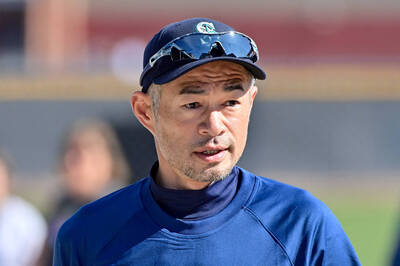《TAIPEI TIMES》 The undertaker and redemption

Chen Hsiu-chiang poses for a photo in his office in Changhua County. Photo: Han Cheung, Taipei Times
From the 2014 Penghu air disaster to last month’s Yilan bridge collapse, a volunteer team led by an ex-gangster has been on the scene providing mortuary services, from repairing mangled bodies to dealing with loved ones
By Han Cheung / Staff reporter
For most of his life, Chen Hsiu-chiang (陳修將) did not believe that there was good in the world.
“People in gangs often don’t believe in humanity; we engage in antisocial behavior and believe that the world owes us and revolves around us. Our only value is materialism,” he says.
That life wasn’t too long ago. Nine years ago, at the age of 30, Chen got out of prison and left the underworld behind. He took a job in the funeral service industry.
Today, he is the organizer of 76 Monks (76行者遺體美容團隊), a growing network of more than 300 volunteers who respond to disasters and accidents nationwide, providing not just mortuary services such as repairing mangled bodies, but also social workers for the victims’ loved ones as well as helping with disaster relief. They were most recently on scene last month after the Nanfangao Bridge (南方澳橋) collapse, and have been involved in every major incident — as well as minor ones — since the TransAsia Airways Flight GE222 crash in 2014 that claimed 49 lives.
“We’ve handled large casualties from [last year’s] Puyuma train derailment and Hualien Earthquake to the [2017] Iris Travel bus crash … but it doesn’t matter how serious the incident is. Even if just one person died, we’ll be there,” Chen says.
Chen says he is driven by a desire to give back, having been shown genuine kindness from a prison volunteer.
“First of all, there’s a need for our services,” he says. “But I know how it feels to be at rock bottom when someone reaches out a helping hand; it’s a life-changing experience. I met many people with similar experiences, and we developed our team’s core values.”
SEEING THE GOOD
During his last stint in jail, Chen found it hard to believe that the instructors who came to teach writing classes were volunteers. One had even been doing it for 30 years.
“She told me that she hadn’t been a good wife and a good mother because she spent so much time with inmates. Even more surprisingly, her family wasn’t bitter and fully supported her endeavors,” Chen says.
Even when most inmates the teacher tried to help eventually returned to a life of crime, she told Chen she never felt discouraged.
“How can someone be so foolish?” he thought. “So this world really has people who do good without worrying about the results. I was deeply moved, and started to believe that there was good in this world.”
After getting out of jail, Chen wanted to emulate the teacher, but didn’t know where to start. Four years later on July 23, 2014, the Penghu plane disaster took place and the government called for volunteer morticians to help restore the bodies. Chen and 26 other professionals responded.
A week later, the group headed to Kaohsiung where 32 people were killed in a series of gas explosions.
The team grew from there, adding services, expanding its members and entering a partnership with the Central Emergency Operation Center last year. At first, they only accepted other funeral service professionals, but now Chen says the volunteers include all walks of life, “even including nursery school teachers.”
When last month’s bridge accident broke out, 76 Monks had team members in the area who were able to arrive on the scene immediately. After assessing the situation, since the low death toll of six people, a total of eight volunteers were dispatched to repair and transport the bodies to funeral homes.
But Chen says that the team needs to grow.
“I tend to expect the worst, and sometimes I think, what if we have another 921 Earthquake? What if there’s another [Typhoon Morakot]? What we have now is not enough for that scale,” he says.
ABSOLUTE EMPATHY
Chen no longer flinches at seeing dead bodies, no matter how messed up they are. But the challenge comes when dealing with the victims’ loved ones, who are in a highly emotional state and often act irrationally. Funeral service professionals already carry a negative reputation, he says, and the volunteers have to gain their trust and explain why they can’t see the deceased right away or take the body home.
“This could lead to conflict if the volunteer is also hotheaded,” Chen says. “That’s why we have social workers. They know how to get the family to listen.”
Chen says the worst incident he’s witnessed was during the 2016 Tainan Earthquake, when over 100 people were crushed in the Weiguan Jinlong building when it collapsed. Most of the bodies were crushed beyond recognition, with entire families found dead.
“We were working in the basement of the Tainan City Mortuary Services Office. There were many family members in there, and the sound of crying never stopped echoing through the long hallway. There were furious howls and anguished wails. It took extraordinary willpower for our volunteers to stay there,” he says.
The key, Chen says, is absolute empathy.
“You have to put yourself completely into the role of the family members, otherwise you can’t withstand it. Enthusiasm is not enough. Also, only by being completely empathetic can you fully communicate with the families. You can’t fake it. They’re very sensitive at that moment and they know,” he says.
PROCESSING GRIEF
The downside of being so immersed in such a role is that Chen starts to feel as if all the victims are his family members. It creates immense psychological pressure, he says.
Personally, he prefers processing these negative emotions alone — sometimes sitting in his car for two or three hours before he enters his house, or staying in his office all night watching footage of past incidents.
“Sometimes I sit there and cry all night,” he says. “After being so involved, these negative emotions will never go away. So I purposely dig them up and let them boil over, then let them settle again. I remind myself of why I’m doing all of this, I try to re-experience the grief of these people, and then my will gets a little bit stronger.”
Chen’s work has also transformed his approach to life, citing German philosopher Martin Heidegger views on facing death.
“Our culture teaches us to avoid talking or thinking about death, but that leads to many people not knowing why they’re alive, and they end up living aimlessly. But the only true goal of life is eventual death. And that can happen any time, so I’m used to thinking of everything under the premise of death. For example, if I get into an argument with a friend, I consider the fact that one of us might die the next day, and either way it will cause me regret. So I let it go.”
新聞來源:TAIPEI TIMES

The 76 Monks team ritually bows to the hearse at the end of each mission. Photo courtesy of 76 Monks

Chen Hsiu-chiang and his team work on repairing the bodies of the victims during last year’s Puyuma train derailment. Photo courtesy of 76 Monks



















